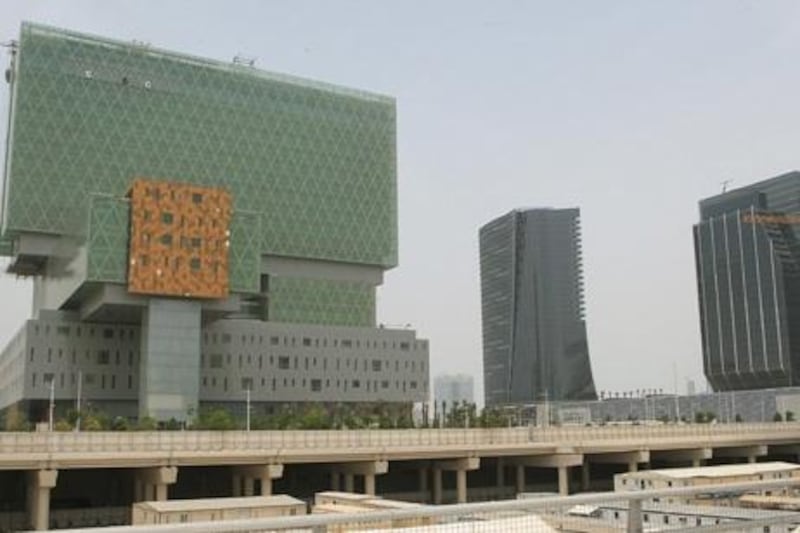The prospect of the new financial free zone in Abu Dhabi has a lot of people excited.
Lawyers in the capital are working overtime to produce the legislation needed to get the project, decreed by the federal government, on track to be operational by the end of the year.
The recruitment firms are busy working on the lists of international heads to hunt to staff the free zone.
Financial professionals in both Abu Dhabi and Dubai are weighing their options with regard to the project, the biggest thing to hit the UAE financial industry since the launch of the Dubai International Financial Centre in 2004.
While we await the details of the institutions and authorities that will form the core of the project, it's a useful exercise to assess how we got here. It tells us a lot about where the initiative might be heading.
Lawyers have dissected the original legislation that enabled the UAE to set up financial free zones. It all goes back to federal law number 8 of 2004, which decreed the right of the seven emirates to each set up a financial free zone.
This was a federal law, but was a Dubai initiative, lawyers point out, because Dubai was the only emirate back then to have the intention and the will to launch a financial free zone. The emirate had to pass its own legislation, which eventually became Dubai law number 9 of the same year, to get the DIFC up and running.
Although the decree that appeared in the Abu Dhabi Official Gazette last February was a federal decree, it was also obviously an initiative by the capital. Nobody is seriously suggesting financial free zones in the other five emirates that do not currently have one. Scrutineers also point out another interesting fact from the limited information that is in the public domain.
Although the Abu Dhabi plan leans fairly heavily on the DIFC model in terms of regulation, courts and legal systems, it does not appear to be proposing the establishment of the equivalent of the DIFC Authority, the independent body created to oversee operations in the Dubai free zone.
This suggests that the new Abu Dhabi entity might be more closely integrated into the existing administrative structure in the emirate, rather than being run by an apparently independent body like DIFC Authority.
This is food for thought, in particular, for the regulators in the UAE. The two federal regulators, the UAE Central Bank and the Securities and Commodities Authority, are already joined by the Dubai Financial Services Authority, the DIFC watchdog.
When the new Abu Dhabi centre is born, there will be a fourth significant financial regulatory force in the UAE (or a fifth if you include the little-known body the Insurance Authority), provisionally entitled the Financial Services Regulations Bureau.
Sceptics point out that this could be a level of regulation too much, and that it might add significantly to the cost of doing business in the country for global financial and investment institutions.
However, the logic of Abu Dhabi having a financial free zone dictates that it should also have its own regulator, to increase the appeal to potential international customers. Lines of responsibility between the Central Bank, the Securities and Commodities Authority and the Financial Services Regulations Bureau will have to be clearly delineated to avoid costly duplication.
The tone of reaction in Dubai so far has been all about the "complementary" nature of the proposed Abu Dhabi project. In the regulatory environment, this comes across as a belief that anything that helps to raise standards of governance in the UAE financial services industry is a good thing and should be welcomed.
No doubt behind the scenes financial professionals will be doing the calculations on what material effect the new Abu Dhabi free zone will have on the existing business of DIFC and on its ambitious expansion plans over the next few years.
But so far there is a general feeling that the new Abu Dhabi free zone will increase the size of the financial services "pie" in the Emirates and Dubai is welcoming the challenge of ensuring its slice of that pie continues to grow.
fkane@thenational.ae
A chance to work in tandem as free zone fever starts to build
While we await the details of the institutions and authorities that will form the core of the Abu Dhabi financial free zone, it's a useful exercise to assess how we got here.

Editor's picks
More from the national




